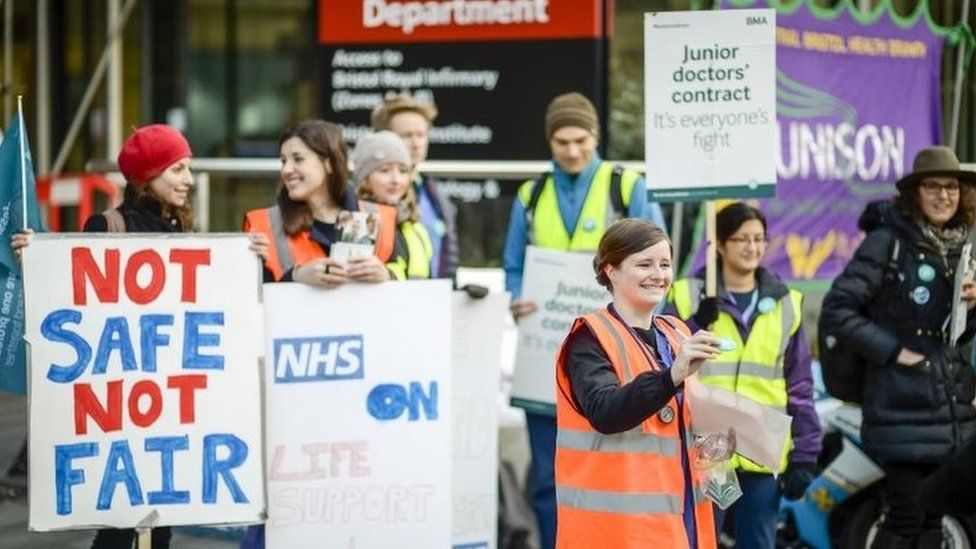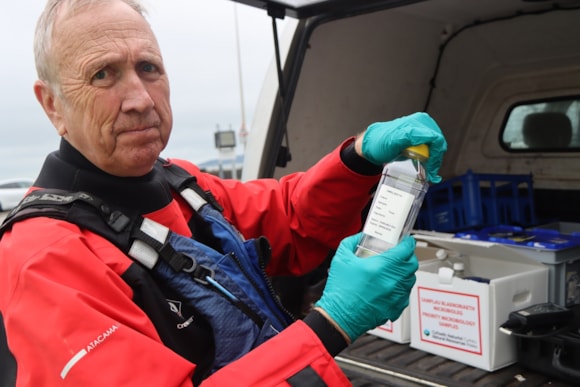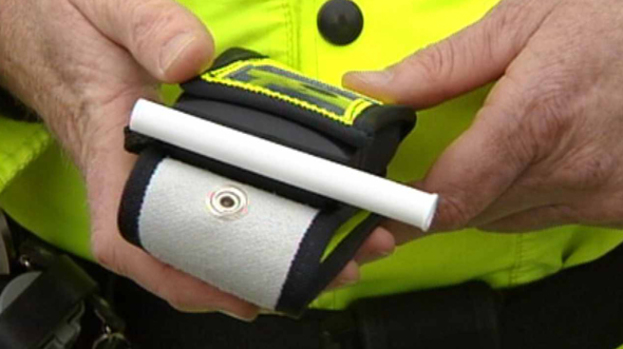Health
Junior doctors secure strike extension in pay negotiations with WG

BMA Cymru Wales has confirmed a positive development in its pay negotiations announcing that Junior doctors have secured a three-month extension to their overwhelming strike mandate.
This means that junior doctors in Wales now have the right to enact industrial action over their pay until 17 September 2024 instead of 17 June when the mandate was due to run out.
Recognising the strength of feeling amongst junior doctors and the overwhelming 98% vote by members in favour of industrial action back in December 2023, employers have agreed to honour this extension to allow talks with the Welsh Government to continue.
Co-chairs of the Welsh Junior Doctor Committee Dr Oba Babs-Osibodu and Dr Peter Fahey said of this development:
“We are pleased to be able to secure an extension to our overwhelming strike mandate. Whilst we hope to put an end to our pay dispute through pay negotiations by reaching a credible deal and restoring our pay, it was important to secure more time for our mandate.
“The extension allows us to focus on talks but also provides us with the scope to get organised and enact our legal right to strike should we need to. This is about honouring the emphatic mandate of our members.
“Doctors have experienced real terms pay cut of almost a third since 2008. They voted overwhelmingly to put an end to the devaluing of their service, they know they are not worth a third less than their predecessors and they know the time is now to stick up for the profession and turn the tide of the continued erosion of their pay once and for all”.
The Welsh Government and NHS employers have agreed to the extension as part of ongoing pay negotiations where all parties hope to reach an end to the pay dispute with junior doctors, SAS doctors and Consultants in Wales.
Last month, BMA Cymru Wales announced it was suspending forthcoming industrial action for Consultants and SAS doctors and putting plans on hold to announce more strike dates for junior doctors to allow pay negotiations to take place*.
The decision to enter pay negotiations was based on a significant proposal from the Welsh Government to form the basis of talks to end the pay disputes with all secondary care doctors including Consultants, SAS, and Junior doctors, with the aim of reaching deals which can be taken separately to their respective members.
In August last year, the BMA’s committees representing secondary care doctors in Wales voted to enter separate trade disputes with the Welsh Government after being offered another below inflation pay uplift of just 5% for the 23/24 financial year. SAS doctors on some contracts were offered as little as 1.5%. This was the lowest pay offer any government in the UK offered and less than the DDRB, the pay review body for doctors and dentists, recommended last year.
As part of their disputes, SAS doctors, consultants and junior doctors carried out successful ballots for industrial action. Since then, junior doctors have taken part in 10 days of industrial action since January this year.
Health
Bathing water samplers set for a busy season of water quality checks

WHILE families across Wales start making plans for the summer, samplers from Natural Resources Wales (NRW) are embarking on their annual programme of bathing water quality tests.
This year, there are 110 designated bathing waters which will be sampled multiple times between 15th May-30th September, in line with the UK Bathing Water Regulations. 109 of these are coastal waters, and one inland lake (Llyn Padarn).
Last month the Welsh Government announced that Nefyn Beach in Gwynedd had been added to the list of designations, following a successful application.
Bathing water samples are sent to NRW’s laboratory in Swansea, where they are tested for levels of Escherichia coli (E. coli) and intestinal enterococci (IE).
Results from a four-year rolling period then determine the classification for the next bathing water season; excellent, good, satisfactory or poor.
Last year, 98% of Wales’s designated bathing waters met stringent environmental standards, with 80 out of 109 meeting the ‘excellent’ criteria.
Clare Pillman, Chief Executive of NRW said:
“More and more people are enjoying the benefits of open water swimming, and where better to take a dip than at one of the many fantastic bathing waters Wales has to offer.
“Our blue waters offer a wealth of recreation opportunities, providing a vital boost to Wales’ tourism sector and the health and well-being of our communities.
“Our teams continue to work hard to tackle the many sources of pollution which threaten our water quality, including from agriculture and storm overflows. Much progress is being made, and we are pressing for record levels of water company investment for the environment in the coming years to safeguard the future health of our waters.”
Prior to the start of the traditional bathing water season, NRW officers undertake a number of pre-season checks and samples. This includes checking to ensure permit conditions for nearby discharges are being complied with.
Issues or deteriorations flagged in last year’s results are investigated by local teams to identify any sources of pollution which may be contributing to high bacteria levels found in samples.
Information about where to find designated bathing waters, and the standard of bathing water is available on NRW’s website.
Visit the Adventure Smart website for information about swimming safely in open waters.
Community
Further pleas to save Anchorage Day Centre

A PLEA by a concerned parent to keep Pembroke Dock’s Anchorage Day Centre open was heard at a full meeting of Pembrokeshire County Council.
The Anchorage Day Care Centre in Pembroke Dock has been a “safe and happy place” for adults with learning difficulties and additional needs for decades.
In more recent years it has expanded to support elderly dementia sufferers.
But now the centre is expected to close, with services instead being offered elsewhere in the county, including Haverfordwest and Milford Haven.
A series of engagement events have taken place at The Anchorage recently, outlining the reasons and the options in continued service.
One parent, who wished to remain anonymous, said: “One young woman who attends ran out of the first meeting sobbing when she was told it was going to close. Another, at the second meeting, tried to address the meeting but was so choked up at the thought of not seeing her friends anymore she could hardly speak.”
In a submitted question heard at the May 9 meeting of Pembrokeshire County Council, concerned parent Peter Welsh asked: “Is the council aware of the huge impact the impending closure of the Anchorage Adult Day-care Centre in Pembroke Dock is already having to the health and mental wellbeing of my daughter and 20 other vulnerable adults with special needs and learning difficulties, who are unable to cope with changes to routine, or to process and understand what is happening to them?
“And would the council, therefore, please review its closure decision and retain the centre and the vital and invaluable service it provides not only to the individuals concerned but also to the parents?
“If not, what specific measures does the cabinet member have in place to support my daughter and these other individuals who need extra assistance to enable them to maintain their independence, value and allow their carers to have valuable respite from their caring responsibilities and what are the estimated costs for these substitute measures?”
Responding, Cabinet Member for Social Care & Safeguarding Cllr Tessa Hodgson said an engagement with service users, carers and families was made immediately after staff were informed about the potential closure following the council’s March budget setting.
Members were told two sessions were held with all concerned, with a list of alternative day opportunities in the county outlined, with opportunities to attend short sessions at the other centres being available so they “can fully explore which opportunity is best suited to their needs and wants”.
“All service users of the Anchorage will be offered alternative day centre arrangements in order to preserve their independence and also to support the caring needs of their families, these assessments are still taking place and are likely to continue to do so at least until the end of May.”
Cllr Hodgson said she was unable to provide estimated costs of the new arrangements until all the assessments were in place, hoping to update members at a future date.
An online e-petition, on the council’s own website has been launched calling for the Anchorage to stay open.
Health
Calls for Welsh Govt to improve both maternity and neonatal safety

LEADING pregnancy charities have urged the Welsh Government to take stronger measures to enhance maternity and neonatal services, in order to realise the substantial changes necessary to reduce infant mortality. The Sands and Tommy’s Joint Policy Unit released a revealing report today, stating that initiatives in Wales are inadequate to instigate the vital transformation required to prevent baby deaths.
The report, titled “Saving Babies’ Lives 2024: Progress Report,” notes that strides toward diminishing stillbirths and neonatal deaths have halted in Wales, mirroring a stagnant situation across the UK. The findings suggest that with improved care, as many as 800 infant lives could have been saved throughout the UK last year. The document emphasises the urgent need for meaningful action to tackle the severe and enduring disparities in baby loss and pregnancy complications across different demographic groups.
Particularly alarming is the continuing disparity in outcomes for infants from varied ethnic backgrounds and socio-economic statuses. The report underscores that the stillbirth rate in Wales has exceeded that of any other UK nation since 2014, with minimal improvement in neonatal mortality rates over the past decade. Unlike England, which aims to halve the rates of stillbirth, neonatal death, preterm birth, maternal death, and brain injury by 2025 relative to 2010, Wales has set no similar goals.
Moreover, the report criticises the Welsh Government for the insufficient number of reviews conducted following infant deaths, which are crucial for understanding potential lessons and providing grieving parents with needed explanations.
Robert Wilson, head of the Sands and Tommy’s Joint Policy Unit, commented, “Our report unequivocally shows that the Welsh Government must establish clear targets for reducing pregnancy loss and baby deaths, and for eliminating inequalities. These targets should catalyse a thorough suite of policy measures, adequately supported by necessary funding and resources.”
The report provides specific recommendations to enhance maternity safety in Wales, including the consistent involvement of staff and patients, especially bereaved parents, in assessing the quality of maternity and neonatal services. It also calls for transparent and independently overseen reviews of individual services, and improvements in the completion rate of reviews following a baby’s death.
The Joint Policy Unit is advocating for a unified commitment across all four UK nations to eradicate inequalities in pregnancy and baby loss. Disturbingly, the 2021 data revealed that the rate of stillbirths and neonatal deaths among Black babies was almost double that of White babies, and significantly higher than the overall UK rate. This disparity was similarly stark between the most and least deprived areas in the UK.
The report also highlights that only about 2% of public and charity health research funding has been allocated to reproductive health and childbirth over the last two decades, signalling a need for increased investment in these crucial areas.
-

 Entertainment2 days ago
Entertainment2 days agoDolly Parton to explore Welsh roots near Tenby in upcoming TV special
-

 News5 days ago
News5 days agoCyclist dies during annual charity ride to Tenby
-

 News6 days ago
News6 days agoRenewed social media appeal over Sian Batchelor’s death
-

 News5 days ago
News5 days agoAurora Alert: Another chance to see the Northern Lights tonight
-

 Crime2 days ago
Crime2 days agoMilford woman ’caused significant life-changing injuries to motorcyclist’
-

 News16 hours ago
News16 hours agoLife literally ‘buzzing’ for west Wales EuroMillion winners
-

 Crime6 days ago
Crime6 days agoFormer Pembroke Dock mayor admits child abuse image charges
-

 News3 days ago
News3 days agoSian Batchelor: Police issue new appeal for information
























